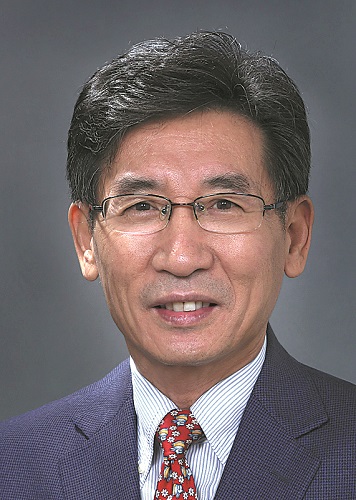Deputy's dedication to sci-tech cooperation bears fruit

Xue Qikun, a deputy to the National People's Congress and president of Southern University of Science and Technology
A national lawmaker from Shenzhen, Guangdong province, has delivered on his promise made at last year's two sessions as he achieved a major breakthrough in the field of superconductivity.
This year's two sessions, the annual meetings of the top legislative and political advisory bodies, will start on March 4 in Beijing.
Xue Qikun, a deputy to the National People's Congress, the top legislature, and president of the Shenzhen-based Southern University of Science and Technology, along with physicists from other institutions, has found that compounds containing nickel can conduct electricity without resistance at normal atmospheric pressure.
Their research, published in scientific journal Nature on Monday, is significant because until now nickel compounds, known as nickelates, needed to be subjected to extremely high pressure to act as superconductors.
"Collaboration in achieving this breakthrough is important because the partnership among Southern University of Science and Technology, the Quantum Science Center of the Guangdong-Hong Kong-Macao Greater Bay Area and Tsinghua University allowed for large-scale, interdisciplinary efforts and, thereby, accelerated progress," Xue told China Daily in an interview.
As an NPC deputy, Xue had advocated partnerships in education and technology during the two sessions last year, and called for a new system for training talent and solving complex scientific and technological problems through cooperation between Guangdong and the Hong Kong and Macao special administrative regions.
The successful research on an "unconventional" nickel superconductor is a clear demonstration of his dedication to scientific cooperation.
Speaking on the upcoming two sessions, Xue said he will continue to advocate a holistic approach where universities play a central role in the country's innovation ecosystem.
"Attracting, retaining and making the best use of talented individuals is crucial for scientific progress, and universities need to adapt their academic programs to reflect the latest trends in science and technology," he said.
Xue added that "by attracting and cultivating talent, fostering a supportive environment for research and entrepreneurship, and adapting their academic programs to meet the demands of a technology-driven economy, universities should play a central role in China's innovation ecosystem".
According to the Chinese team's research published in Nature, compounds containing nickel are able to carry electricity without resistance at a temperature of 45 Kelvin, or — 228 C.
The highest transition temperature of conventional superconductors is 40 K, or — 233 C, also known as the McMillan limit. The search for superconducting materials with higher transition temperatures has always been a key quest in the scientific community.
In 2023, Chinese scientists achieved superconductivity in a specific type of nickelate, but only under extremely high pressure. Achieving superconductivity in nickelates at ambient pressure became a major goal. The research team spent three years developing a new technique, eventually producing high-quality nickel oxide.
The team observed the key hallmarks of superconductivity in a thin film of nickel oxide crystals. Their study showed that the nickelate crystals lost resistance at a critical temperature and expelled magnetic fields.
The discovery has excited the scientific community because nickelates now join two groups of ceramics — copper-based cuprates and iron-based pnictides — as "unconventional" superconductors that operate at ambient pressure and high temperatures.
This new data could help experts design materials that operate under ambient conditions, which in turn could make medical technologies, such as magnetic resonance imaging, more efficient and radically cheaper.



